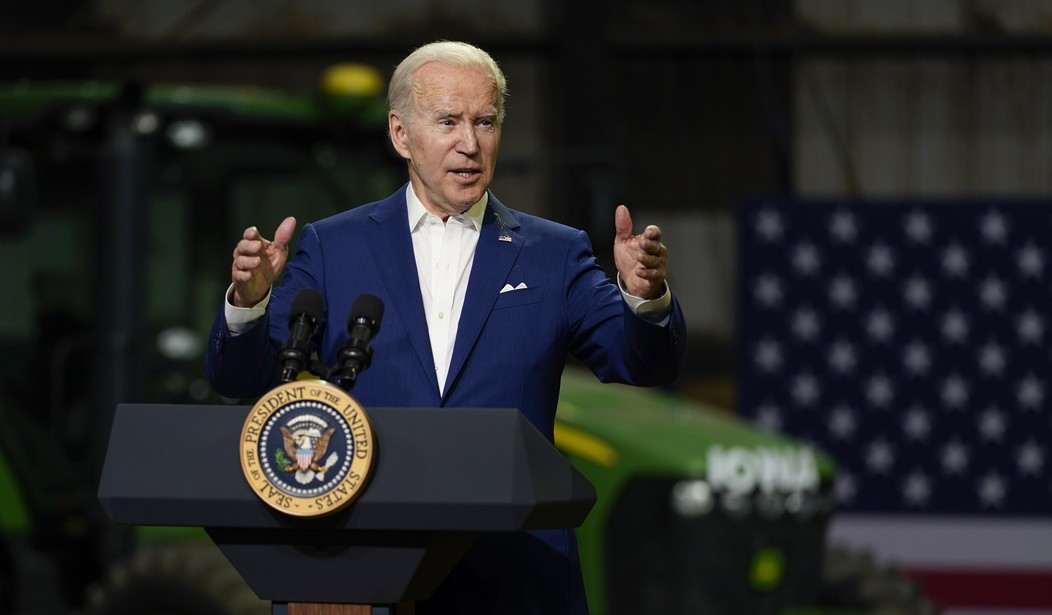Give the New York Times's Ezra Klein credit for identifying a problem with big government institutions. "Our mechanisms of governance have become so risk averse that they are now running tremendous risks because of the problems they cannot, or will not, solve," he tweeted. The subject was San Francisco's attempt to make permanent the parklets, or parking spaces used as outdoor restaurant space, through 60 pages of regulations.
Similarly, here is Klein lamenting that plans to impose congestion pricing on drivers in Manhattan, a policy that's arguably worked well in central London, can't be launched until 2024.
Why so long? Klein asked. State and city governments have to agree, an environmental assessment takes "16 months of public meetings and traffic analyses," and the government has some 400 comments and questions -- how many nonwhite cab drivers may be displaced?
Klein is not the only one. In Manhattan, blogger and substacker Josh Barro reported, the transit authority's plan to build one elevator and two new entrances at the Second Avenue subway's 68th Street station is projected to cost more than $100 million. That's typical. In 2017, the New York Times's Brian Rosenthal documented that the subway's construction costs ran $3.5 billion per mile, six times the cost in unparsimonious Paris.
Some historical perspective: The Second Avenue subway was first proposed in 1920. Construction began in 1972. The first three stations were opened in 2017. Compare with New York's first subway: The contract was put up for bids in November 1899. Construction began in March 1900. The first train ran and 20-some stations were opened on New Year's Day in 1904.
None of this will come as a shock to those who have read Common Good founder Philip K. Howard's books or to those familiar with what Klein admitted are the "lackluster results" of the much-ballyhooed Obama infrastructure legislation. Or to those who remember that the Obama program, at the behest of feminists, created few jobs for "burly men" and more for "administrators, facilitators, liaisons" in health care and education.
Recommended
The roots of these problems were identified by the late economist Mancur Olson in his 1982 book "The Rise and Decline of Nations." In a stable democratic society, he argued, groups with economic interests or ideological agendas organize and manipulate government to seek advantages. They are powerful because they care greatly about protecting their niches, while the wider public is ignorant or apathetic. Thus growth is sacrificed as regulations bar competition to incumbent firms and environmental review requirements and lawsuits impose enormous costs in money and time.
Thus, over time, success breeds failure. Countries after disastrous defeats, such as Germany and Japan in 1945, face clean slates and can create new institutions and rules that allow growth. Countries that are victorious have no reason to scrape the barnacles off their hulls, even as they slow down the ship of state more each year.
So what can be done to create "a liberalism that builds," as Klein urges, or to pursue the "abundance agenda" that the Atlantic's Derek Thompson advocates? History suggests two developments are necessary. One is some appreciation that old arrangements are choking off a better future. Two is a cross-party or cross-ideological alliance to sweep out the ossified cobwebs.
Example one is the United States's move toward deregulation of transportation, including trucking, railroads and airlines, and communications, such as telecommunications and cable, in the 1975-85 decade. Ralph Nader played a key part in showing how entrenched interests profited from regulations that raised prices and eliminated competition.
Conservative think tanks such as the American Enterprise Institute joined in. Democrats including President Jimmy Carter and former Sen. Edward Kennedy sponsored major reforms, and President Ronald Reagan's administration followed up. The result was to squeeze enormous costs out of the economy and quietly improve the standard of living of millions of ordinary people.
The other episode was the wave of welfare reform and crime control in the 1990s. Here public opinion was ahead of many experts, recognizing that welfare, by encouraging fatherless families, was producing one generation after another of criminals, destroying the fabric of great central cities.
The solutions were welfare work requirements, pushed by former House Speaker Newt Gingrich and accepted by former President Bill Clinton, and the crime control policing reforms pushed so effectively by former New York Mayor Rudy Giuliani and, in his wake, by many others.
We're still waiting for a third wave. Former President Donald Trump, the repairer of the Wollman Rink, seemed like a natural for infrastructure reform, but he never got engaged in the details, while Democrats were fixated on using the Russia collusion hoax to force him out of office.
Now we have an Amtrak fan as president who wants to subsidize money-losing fixed rail, even though private bus companies showed pre-COVID-19 that they could provide intercity transportation for many more people at lower monetary and environmental costs -- and as launching rockets becomes a contest between Elon Musk and Jeff Bezos, with NASA on the sidelines. While the public sector is bogged down, the private sector seems to be forging ahead.
Michael Barone is a senior political analyst for the Washington Examiner, resident fellow at the American Enterprise Institute and longtime co-author of The Almanac of American Politics.























Join the conversation as a VIP Member